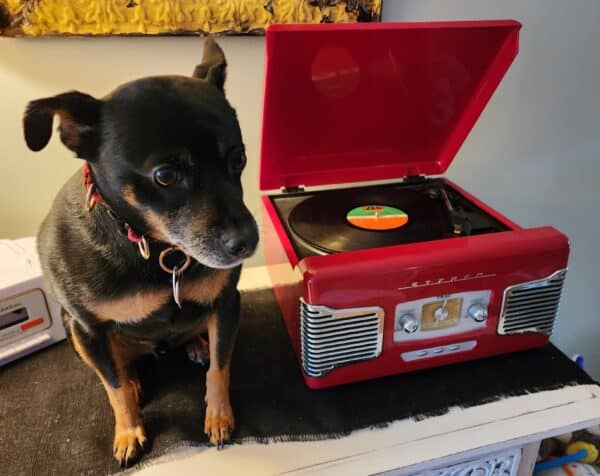Music has an undeniable impact on humans. But do dogs like music? Considering that dogs can’t tell us exactly how they feel, the answer isn’t conclusive. But some studies have shown positive responses in dogs.
It’s a tough question to answer, says dog behavior expert and VCA Animal Hospitals Vet Tech Ali Creighton, because there is no proven way to determine whether a dog is actually enjoying music.
“Studies have shown positive responses in behavior and body language, but this is something that is going to vary dog to dog,” she says. “Just like people, dogs have preferences too.”
Derrick Garrett, Zoundz Music for Pets founder and CEO, is more certain.
“Of course, they do,” he says. “But it must be the right music.”
What kind of music do dogs like?
While dogs don’t necessarily respond to specific genres of music, they respond to specific parameters within a song, including tempo, chord progressions and instrumentation, Derrick says. Some classical music and sub-genres contain all the calming parameters for dog relaxation, but these can technically fall under any genre or sub-genre of music.
Empirical data has shown that dogs have a preference for classical and, interestingly enough, reggae music, says Ali.
What does a preference look like? One study evaluated dogs’ heart rates in response to different types of music. And, if you wonder if your dog sings to his favorite music, check out this video on the science of why dogs sing.
Calming music for dogs

Relaxing music for dogs may help with stressful situations or anxious dogs.
“Music can absolutely affect dogs’ behavior,” Ali says. “Response and preference to music will vary from dog to dog. Common responses include relaxation and in some cases, a decrease in anxiety.”
Each song in the Zoundz Music For Pets repertoire is tested to calm dogs in stressful environments or circumstances, including shelters, veterinary hospitals, boarding and daycare facilities, explains Derrick.
A quick search will show online playlists like “Calming Music for Dogs” or “Dog Music” can work.
“A lot of those playlists will consist of soft, classical music,” she says. “As long as your dog is not displaying a negative reaction to music (anxiety, fear, etc.), owners can feel free to try them out.”
Some pet parents may also wonder if there’s music to help dogs sleep. Derrick says no.
“Within the species-specific music parameters, there is some flexibility to lower the music tempo to a rate that could lead to your dog sleeping,” he says. “Still, I would not venture to say there is specific music for dogs to sleep to.”
How music can help dogs
Music can be used for training sessions. For example, Ali says, if you’re working to train your dog to go lie on her bed and calm down, play music during this training exercise.
“Eventually, in conjunction with the learned command, your dog can begin to associate the music with the desired behavior,” she says. “Additionally, playing music for your dog can be a form of enrichment — as long as your dog is not showing a negative response to music playing.”
Whether it’s a stressful situation or a training session, the right kind of music may be able to help your dog relax. Experiment with playing different types of music in different situations to see if it helps calm your dog. But be careful with playing music too loud.
Ali says, “Dogs can be sensitive to extremely loud volumes, so be sure to practice common-sense volume safety just as you would for yourself.”






